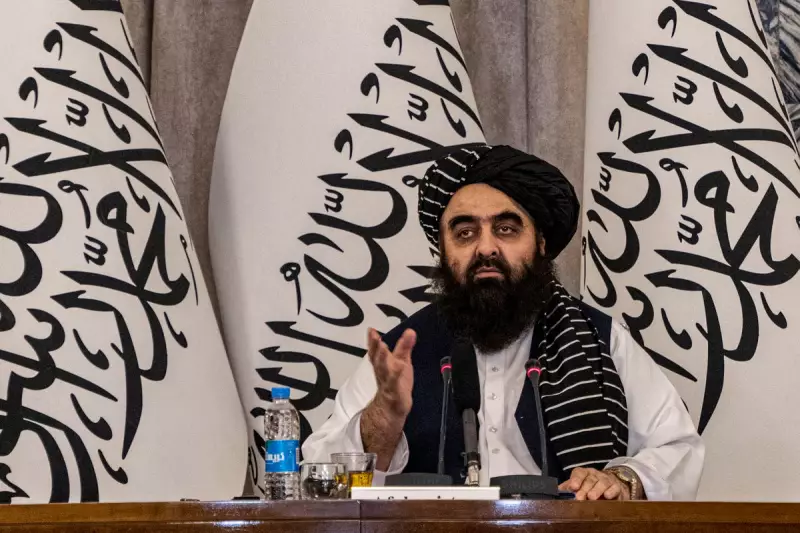
In a move that has sent shockwaves through diplomatic circles, a senior Taliban minister has conducted an official visit to New Delhi despite being subject to a United Nations travel ban. Amir Khan Muttaqi, Afghanistan's acting foreign minister, led a delegation to India this week, marking a significant development in the complex relationship between Delhi and Kabul's ruling regime.
Defying International Restrictions
The visit comes despite Muttaqi being listed on the UN Security Council's 1988 sanctions committee, which explicitly prohibits him from travelling abroad. The Taliban official, who holds one of the most prominent positions in Afghanistan's interim government, attended an unofficial 'track two' dialogue in Delhi, blurring the lines between formal diplomacy and informal engagement.
India's Diplomatic Tightrope
Indian officials have maintained a cautious stance, with external affairs ministry spokesperson Randhir Jaiswal carefully noting that the visit occurred within the framework of India's longstanding ties with Afghanistan. "We have been engaging with the Afghan authorities to protect our strategic interests in the region," Jaiswal stated, without directly addressing the sanctions violation.
The delicate diplomacy reflects India's challenging position - seeking to maintain influence in Afghanistan while navigating international sanctions against the Taliban leadership. Delhi has yet to formally recognise the Taliban government but has engaged in practical cooperation, particularly regarding humanitarian assistance and consular services for Indian citizens.
Humanitarian Concerns vs Political Recognition
India has consistently emphasised its commitment to providing humanitarian support to the Afghan people while stopping short of political recognition. The country has sent multiple shipments of medical supplies, food, and educational materials since the Taliban's return to power in 2021.
However, Muttaqi's presence in Delhi raises difficult questions about how far India is willing to go in normalising relations with the sanctioned regime. The visit suggests a potential shift from purely humanitarian engagement toward more substantive political dialogue.
International Repercussions
The diplomatic manoeuvre is likely to attract scrutiny from Western powers that maintain strict sanctions against Taliban leaders. United Nations Security Council Resolution 2661 explicitly exempts only six Taliban ministers from travel bans for limited periods, and Muttaqi is not among them.
This development comes at a sensitive time for regional diplomacy, with several nations cautiously exploring engagement with Afghanistan's rulers while attempting to pressure them on human rights, particularly women's education and political inclusion.
As Delhi walks this diplomatic tightrope, the international community watches closely to see whether this visit represents a temporary engagement or signals a more fundamental shift in India's approach to dealing with the Taliban government.





